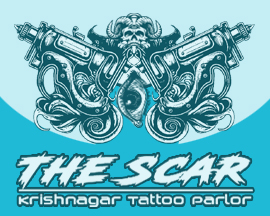Delhi High Court Ruling On Tattoos In Police Recruitment: A Milestone For Aspirants
For young individuals dreaming of joining the Delhi Police, there's some positive news. In a landmark decision, the Delhi High Court has allowed candidates with tattoos to pursue recruitment in the Delhi Police, under specific conditions. This verdict came as a ray of hope for several young men and women aspiring to join the police force but were rejected due to tattoos on their right arm, traditionally regarded as the "saluting arm."
The ruling was a result of a legal battle fought by a 20-year-old youth named Deepak Yadav from Baghpat, Uttar Pradesh. Yadav had faced rejection from the recruitment process due to a faded tattoo on his right arm. His persistence in pursuing legal avenues over a year brought a crucial decision from the High Court that could affect many others in similar situations.
The Tattoo Dilemma and the Fight for Acceptance
Deepak Yadav had always dreamt of serving in the Delhi Police. In September 2023, after coming across a direct recruitment notification for the position of constable (executive) by the Staff Selection Commission (SSC), Yadav decided to apply. He cleared the computer-based exam in December 2023, and only the medical and physical fitness tests stood between him and his dream job.
However, Yadav’s hurdle was a tattoo on his right arm, bearing his mother's name. Delhi Police recruitment guidelines, like those in many other forces, considered tattoos on the right arm problematic, as it is the hand used for saluting. To avoid being rejected during the physical fitness test, Yadav underwent laser surgery to remove the tattoo.
In his January 2024 medical examination, Yadav appeared to meet all fitness standards. Yet, he was declared unfit due to the faint remnants of the tattoo on his right arm. Despite undergoing laser removal, the residual tattoo was deemed sufficient for disqualification.
A Legal Battle Begins
Refusing to give up, Yadav requested a review of his medical examination. He was initially given two weeks to further remove the traces of his tattoo. However, to his surprise, the review medical examination was scheduled just two days later, leaving him with little time to complete additional laser treatments. Consequently, the SSC review medical board declared him unfit once again.
Determined not to let the setback derail his ambitions, Yadav appealed the decision, which led to months of legal proceedings. His journey through multiple courts culminated in a critical judgment in his favor. In February 2024, Yadav challenged the SSC’s decision in the Central Administrative Tribunal (CAT). By April 2024, the tribunal ruled in Yadav’s favor, stating that candidates with tattoos should be allowed the opportunity for a second medical review, especially considering cultural factors.
The CAT highlighted India’s rich tradition of tattooing among indigenous tribes, ruling that having a tattoo should not automatically disqualify a candidate. Based on this, SSC was instructed to reconsider Yadav’s fitness for the constable position.
SSC’s Challenge and the High Court’s Verdict
The SSC, unwilling to accept the tribunal’s order, challenged the decision in the Delhi High Court. During hearings, the court closely examined the specifics of Yadav’s case, including the faded tattoo on his arm. On July 24, 2024, a bench led by Justice Suresh Kait and Justice Girish Kathpalia ruled in favor of Yadav. The court held that a candidate should not be disqualified solely on the basis of a faded tattoo, especially when efforts had been made to remove it.
The High Court further directed the SSC and Delhi Police to include Deepak Yadav in the second batch of police training, starting from July 1, 2024. The court stressed the importance of giving tattooed candidates a reasonable opportunity to remove or fade tattoos within a set timeline.
In its decision, the court acknowledged that when a candidate is involved in the selection process for positions like that in the Delhi Police, they should be allowed time to address any objections regarding tattoos. If the candidate fails to comply within the given timeframe, only then should their candidature be rejected.
A Precedent for Future Candidates
The Delhi High Court’s judgment in Deepak Yadav’s case has created a significant precedent for other candidates facing similar challenges. Many applicants, both men and women, who were disqualified in the 2023 Delhi Police recruitment exam due to tattoos, now have a hopeful path forward. If these candidates show a willingness to remove their tattoos, they can potentially be reconsidered for recruitment.
Yadav’s year-long fight has become a beacon for others, proving that perseverance and determination can lead to victory. His legal victory not only secured his place in the police force but also paved the way for a more inclusive and fair recruitment process for future candidates.
Conclusion
The Delhi High Court’s decision regarding tattoos and police recruitment is a progressive step that balances traditional guidelines with modern realities. Tattoos, once seen as a barrier, can now be managed through medical and legal interventions, ensuring that qualified candidates are not turned away solely based on body art. Deepak Yadav’s case has opened the doors for many aspiring police officers who are willing to adhere to rules but deserve fair opportunities. This judgment reflects a broader societal acceptance of tattoos, allowing individuals to express themselves while meeting the professional standards required in service roles like the police.
Need A Tattoo?
Call- 9475228242 / 9474410022

